King’s Impact Reception 2025



Whether it is pioneering medical research, shaping policy or unlocking opportunities to increase equality, King’s is committed to knowledge with purpose. By sharing what we know, what we learn and what we discover, we ensure that our work reaches far beyond our own walls.
The King’s Impact Reception celebrates the work from King’s that is having a positive, lasting impact on society. It is an opportunity to bring together researchers, academics and students with our alumni and supporters to find ways to be bolder, dream bigger and act faster.
Read on to find out more about the work that was showcased at the event across health, artificial intelligence, business and more and if you have any further questions about our work, please contact giving@kcl.ac.uk.
To find out more about King’s approach to impact, please visit the King’s Impact site
kcl.ac.uk/impact

Are Classics and Theology about looking backwards? Or are they about understanding where we came from to shape where we’re going?
At King’s, experts in Classics, Theology, and Art are redefining our understanding of history and culture while inspiring fresh thinking and deeper moral insight.
For years, the story of Greece’s irregular and often illegal post-war adoptions remained in the shadows. But with the support of King’s donors, Koraes Professor Gonda Van Steen brought it into the light. Through forgotten archives, court records, and the voices of adoptees themselves, her work uncovered this untold history — opening the door for reunion, healing, and hope. Recent policy change in Greece has now also opened pathways for the Greek-born adoptees to restore their citizenship of origin.
The Visual Commentary on Scripture (VCS) is an online resource that pairs biblical texts with curated artworks, bringing both alive for the user in new and vivid ways. Viewing religious art alongside the Scripture that inspired it deepens our understanding of both, making abstract ideas more tangible and

offering new interpretations. The VCS bridges historical and cultural gaps, giving a unique insight into how different generations have understood and responded to the Bible.
How can we shape a future in which digital technologies are inclusive, fair and ethical?
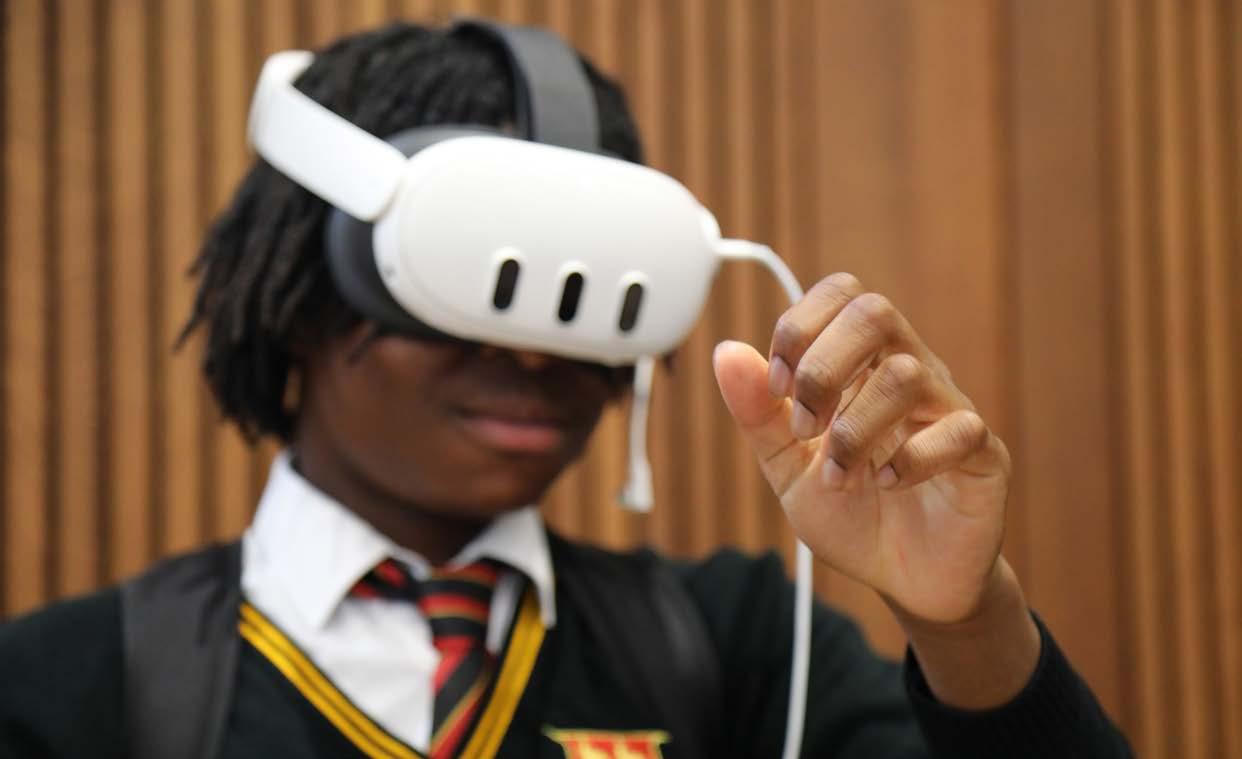
The King’s Institute for Artificial Intelligence (AI) is accelerating the development and use of AI in ways that are safe, secure and can have a real, positive impact on some of society’s most urgent challenges.
The Institute unites expertise from across King’s, taking a pluralistic “AI+” approach to shape purposeful, trusted and responsibly used AI tools. We are investing in and equipping the AI leaders of the future, bringing together the best minds to drive innovation, collaboration and discovery.
And in the Digital Futures Institute, we are empowering the next generation to shape a future where everyone can live well with AI and other technology. The pilot Success for Digital Futures programme invited Black year 10 school pupils from London to interactive workshops designed to demystify digital skills and generate interest in education and career pathways with digital technologies. Thanks to generous philanthropic support, over 200 pupils have taken part since the programme’s launch in 2024.

In a rapidly changing world, how can we shape a more ethical future in business?

From social unrest and political polarisation, to rapid technological advances and environmental crises, there is no doubt the world is changing. This means huge changes in the way businesses can, and should, operate.
Business needs to do social good and we need the the very best people to lead the charge.
Ranked top five in the UK for business and management, King’s has a critical role to play in shaping the next generation of business leaders, with a commitment to equity, inclusivity and doing business that changes the world for the better.
Through I-LEAD – the Centre for Innovation, Leadership, Education and Development –we are extending beyond academic success, fostering creativity and innovation to reimagine business education.
And through the Global Institute for Women’s Leadership (GIWL), we are breaking down barriers in biases and labour

market structures to support women of all backgrounds to thrive at work.
With the help of philanthropy, our research and activities enable businesses to act with humanity first, drive transformation and have a truly positive impact on the way business is done.
From cavities to mouth cancer:
How are we tackling the biggest challenges in oral, dental and craniofacial health?
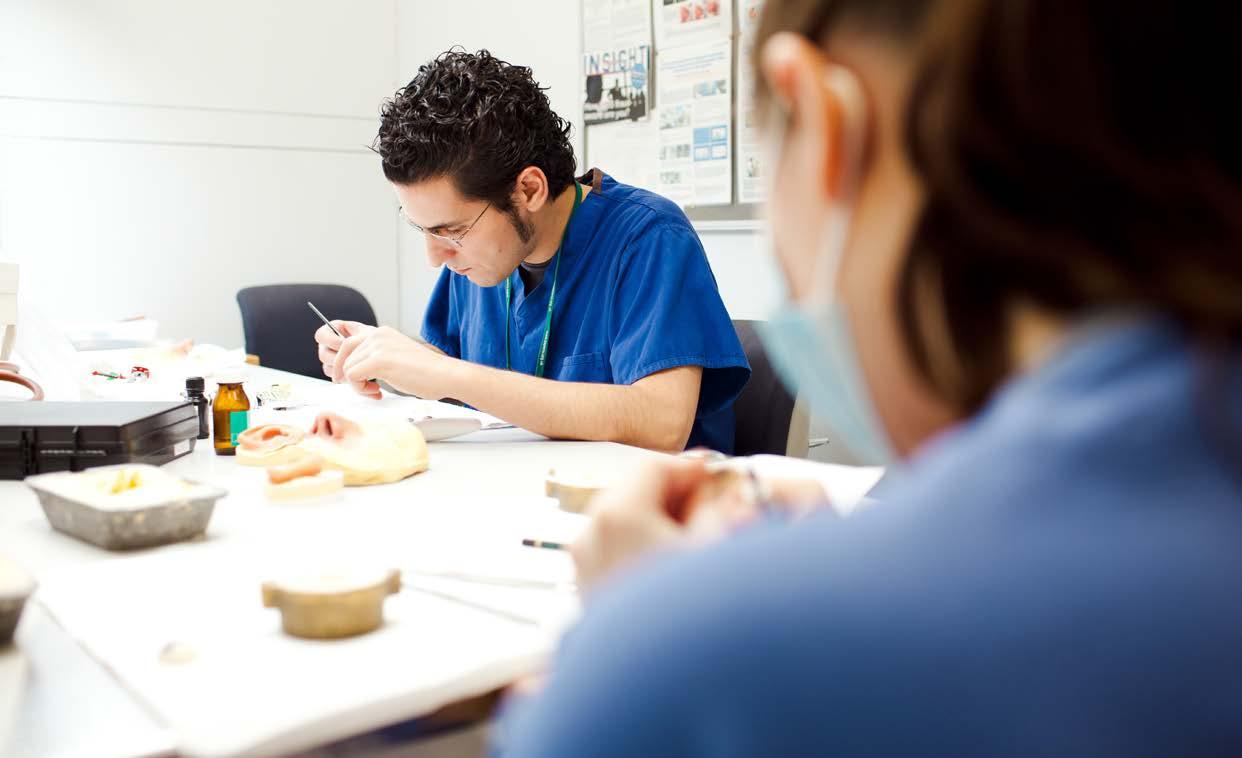
King’s ranks 4th in the world for dentistry and trains around one in five of the UK’s oral health workforce. We deliver some of the most innovative and holistic training in the field, as well as pioneering research that tackles some of the most pressing oral health challenges of our time including:
• Could new technologies help us catch oral cancers sooner and prevent other diseases?
• How can we prevent tooth decay – the most common health condition in the world?
• Can we use the body’s own cells to repair our teeth?
• How do we protect those most vulnerable to oral ill health?
Our work goes way ‘beyond the mouth’ to uncover the significant wider influence of oral, dental and craniofacial health: from links between gum disease and Alzheimer’s, to the profound influence of our body’s microbiome on health and wellbeing.

Philanthropic support is helping King’s to tackle these challenges and more – from student scholarships opening new doors to oral health careers, to cutting edge simulators that allow trainee dentists to safely practice procedures for children.

In a fast-moving world, how can we keep up with global challenges affecting our physical and digital lives?
The Centre of Construction Law & Dispute Resolution at King’s brings together students, academics and professionals from across the construction industry and around the world – from lawyers and engineers, to architects and quantity surveyors. Our interdisciplinary work tackles real-world issues like contract management, supply chain management and arbitration, while also integrating procurement methods, net zero carbon strategies and comparative law.
In the digital space, emerging technologies like artificial intelligence hold the potential to automate tasks, improve access to justice and help lawyers make informed decisions. But to ensure these benefits serve genuine societal needs, we must empower people to play a central role in shaping them. The King’s Centre for Data Futures is a community of scholars, grassroots organisations and policymakers committed to this task. Through initiatives like our data empowerment clinic, we’re finding practical ways for people to gain greater agency over the data-driven
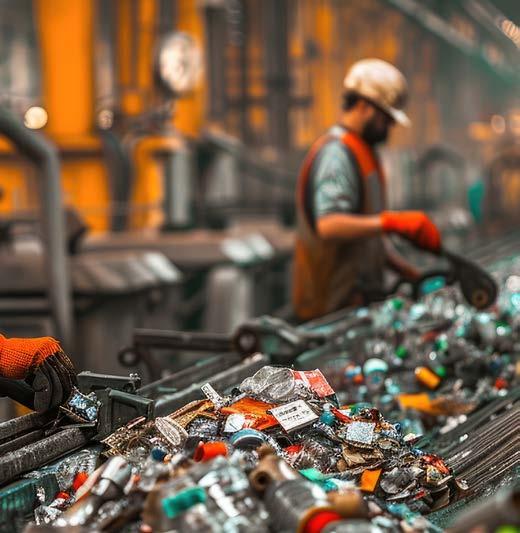
systems increasingly affecting their lives, while incentivising long-term, critical engagement by professional users.

We stand at the pinnacle of an extraordinary streak of scientific progress in human biology, medicine and technology. This equips us to face humanity’s health challenges – from rapidly expanding populations and longer lives lived with poorer health, to widening inequalities and the insecurity of public health funding.
At King’s, we’re uniting diverse thinkers around complex problems, overcoming clinical, technological and socio-cultural barriers to imagine a future where human health is not only improved, but transformed.
A future where artificial intelligence predicts and diagnoses disease earlier, opening unprecedented new doors to prevention.
Where precise and personalised interventions cure cancers, rebuild heart tissue, modify our microbiome to cure chronic disease and holistically treat body and mind.

Where digital technologies and patient data drive innovations, from robot-assisted surgeries to scanners so sensitive they can see drugs targeting diseased cells in real time.
Philanthropic support is helping King’s to bring these new frontiers of medicine to life, from funding young researchers to regrow heart cells, to investing in the future of cancer surgery.

Net Zero – where we stop adding to the total amount of greenhouse gases in the atmosphere – is needed by 2050 to mitigate the worst impacts of climate change.
Connecting expertise across chemistry, engineering, maths and physics, and catalysing links with geography, business, law, social science and health, the Net Zero Centre at King’s is delivering solutions that are effective in the real world. We are answering key questions on our journey to Net Zero, such as:
How can we better protect people and our environment from the growing threat of wildfires?
FIREMOD, led by researchers at the Department of Engineering, is creating a model to predict when and how wildfires spread, taking the accuracy of the lab and applying it to the real world.
And how can we limit the impact of single-use plastics on our planet?
Scientists at King’s have found an innovative solution for recycling single-use bioplastics,

commonly used in disposable items such as coffee cups or food containers. This novel method uses enzymes typically found in laundry detergents to break down bioplastics 84 times faster than the current composting process, helping to tackle the huge volume of plastic waste that ends up in landfill and natural environments.

By 2035, 36 million people in the UK – and 2.5 billion globally – will be living with more than one long-term health condition. Health and care services are already under huge pressure and with this unsustainable increase in demand, it is patients and families who feel the strain.
At the Better Health & Care Hub, we believe the future depends on bold ideas and fresh thinking, coupled with holistic, multidisciplinary research. We’re focusing on three big challenges:
• Building a resilient careforce: addressing urgent workforce shortages while empowering patients, their carers and communities to share in care.
• Driving frugal innovation: creating low-cost, scalable technologies and solutions that widen access to care and support people in their own homes and daily lives.
• Designing care with communities in mind: co-producing new solutions with communities, people and those important to them, ensuring that research, innovation and services reflect real life.
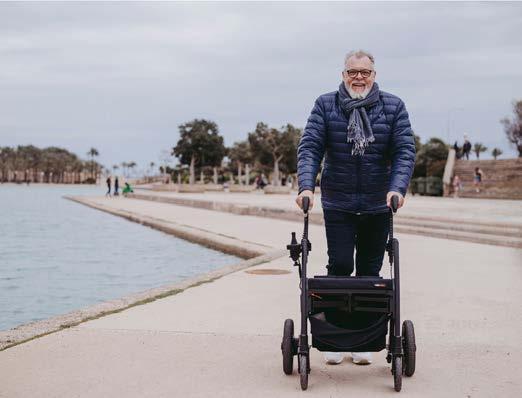
The Better Health & Care Hub is generating insights, evidence and breakthroughs that make radical change possible. We are committed to creating health and care that is inclusive, sustainable and truly responsive to the people served.

Around the world, one billion people are living with a mental health condition and this number is on the rise. In a time of unprecedented scientific and technological discovery, can we harness these breakthroughs to revolutionise mental health care?
At King’s, our researchers are at the forefront of this data and technological revolution, transforming how we predict, prevent and treat mental ill health and neurological conditions, and empowering people to live happier, healthier lives.
Big data can help us to diagnose earlier and more accurately. Treatments that make a difference will be delivered not just in person – but supplemented in accessible ways via a smartphone, a laptop, or even in virtual reality. And with more personalised mental health treatment, everyone can receive treatment that is tailored to their unique needs.
With technology on our side, we can create a better future of mental health care for all.
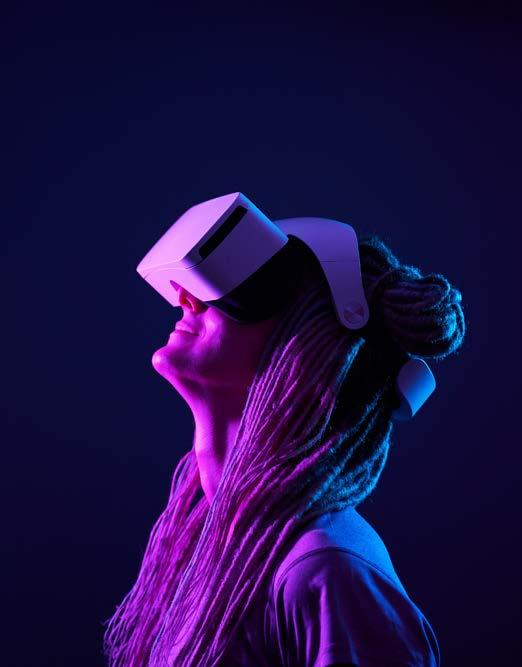

Many of the societal challenges we face today are complex, shifting and interconnected. We need robust, well-researched solutions that stand up to the test.
The Policy Institute at King’s College London works to solve challenges with evidence and expertise, combining the rigour of academia with the agility of a consultancy and the connectedness of a think tank.
From understanding shifting trust, views of social realities, and the role of democracy, to addressing disadvantage and exclusion in communities, the Institute’s research delves into some of the biggest issues affecting societies. The evidence generated helps policymakers to see the full picture and make informed decisions that change people’s lives.
Through MA studentships in Government Studies, and internships within parliament for PhD and post-doctoral researchers, the Policy Institute helps train the next generation of policymakers, drawing on its connections across Whitehall and Westminster.
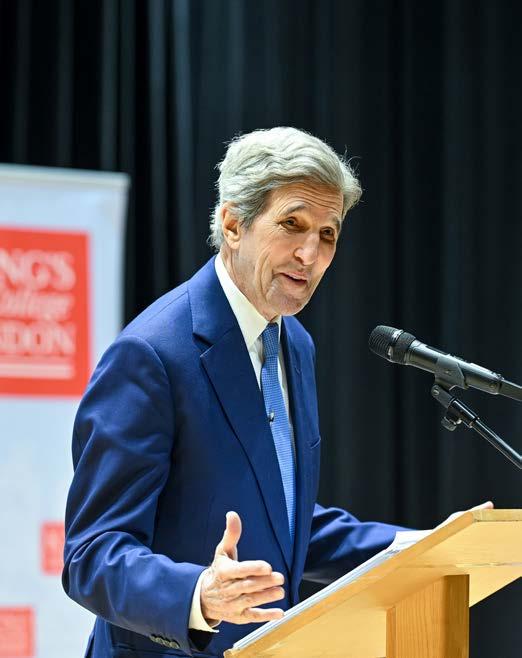

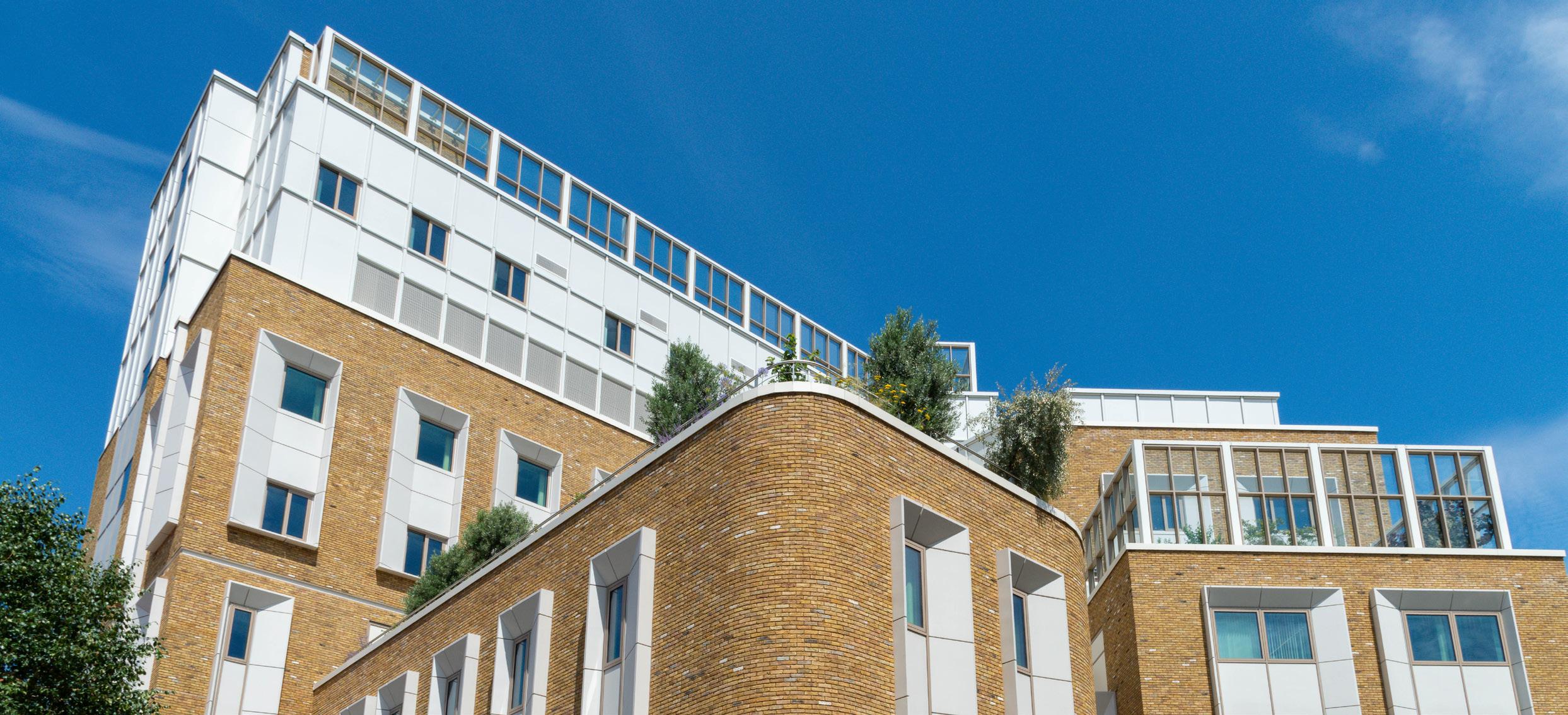
Half of all adult mental health problems begin before the age of 14. Yet, only 8% of UK mental health research funding goes to studies focused on children and young people. Intervening in childhood is critical.
The King’s Maudsley Partnership for Children and Young People is a unique collaboration between King’s College London, the South London and Maudsley NHS Foundation Trust, and the Maudsley Charity. Together, we make up Europe’s largest group of academic and clinical experts focused on understanding causes of childhood mental ill health
With children at our heart and in our unique new home – the Pears Maudsley Centre – we are leading the way in robust scientific discoveries that can be swiftly translated into treatments and support that effectively prevent, treat and cure mental ill health in young people.
With philanthropic support, we want to give every child or young person who uses our services the chance to be part of pioneering research. From child-friendly brain imaging to deep genomic analysis, this will build a complete picture of the underlying drivers of mental ill health in children and young people – leading to targeted solutions that give each child effective care that meets their needs.

